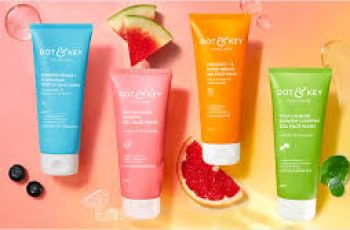
Is Canola Oil Safe for Skin? Dermatologists Weigh In
Oils have become a staple in many beauty routines, delivering benefits for hydration, nourishment, and overall skin health.
From luxurious face serums to effective cleansing oils, plant-based oils play a vital role in modern skincare formulations across all skin types and needs.
Many of the oils we love using on our faces and bodies, like olive, avocado, and almond oil, are also common kitchen ingredients, sparking curiosity about their safety for topical use.
Most of these oils are generally considered safe and beneficial for the skin, but it is important to recognize that not all oils perform the same way or work for every skin type.
This leads to an important question for anyone curious about multipurpose natural ingredients: Is canola oil safe to use on your skin?
To answer this, we spoke with two board-certified dermatologists, Dr. Elaine F. Kung and Dr. Jodi LoGerfo, who shared their expertise about canola oil in skincare.
Their insights will help you understand the potential benefits, drawbacks, and best practices for incorporating canola oil into your routine safely and effectively.
Meet the Experts
Before we explore the uses and effects of canola oil, it is important to know the background of the experts providing guidance on this ingredient.
Elaine F. Kung, MD, FAAD is a clinical assistant professor at Weill-Cornell Medical College and the founder of Future Bright Dermatology, specializing in advanced dermatologic care.
Jodi LoGerfo, DNP, APRN, FNP-BC, DCNP is a celebrity dermatologist at Orentreich Medical Group, LLP, with extensive experience in treating a wide range of skin conditions.
Both experts are highly qualified and bring valuable perspectives on how canola oil behaves in topical applications compared to other well-known cosmetic oils.
What Is Canola Oil?
Canola oil is a plant-based oil extracted from the seeds of the canola plant, which is a specially bred variety of the rapeseed plant.
The term “rapeseed oil” is often associated with industrial uses, but canola oil refers specifically to the edible, low-erucic acid variety developed for culinary purposes.
First created in Canada in 1979, canola oil was engineered to be safe and palatable for cooking and is now one of the most widely used cooking oils worldwide.
Canola oil is high in monounsaturated fats and omega fatty acids, making it nutritionally beneficial when used as part of a balanced diet.
Unlike olive oil or coconut oil, which are already established as popular skincare ingredients, canola oil is relatively new to the beauty world.
However, its composition has sparked interest among formulators, and it is beginning to appear in moisturizers, cleansing oils, conditioners, and even masks.
Benefits of Canola Oil for Skin
While canola oil may not be the first ingredient that comes to mind for skincare, it has multiple benefits that make it a surprisingly effective addition to certain formulations.
1. Moisture Retention
Canola oil is considered a “semi-occlusive” ingredient, meaning it forms a lightweight barrier on the skin’s surface that reduces transepidermal water loss (TEWL).
This helps the skin retain moisture and stay hydrated, making it particularly beneficial for individuals struggling with dry, dehydrated, or rough skin textures.
According to Dr. Kung, this moisture-sealing ability can help relieve winter dryness or environmental dehydration by locking water into the upper layers of the skin.
2. Essential Fatty Acids for Skin Barrier Health
Canola oil contains a balanced ratio of oleic acid and linoleic acid, two essential fatty acids that are critical for maintaining a healthy, intact skin barrier.
Dr. Kung notes that this balance closely mirrors the natural lipid composition of human skin, allowing canola oil to reinforce the barrier and improve overall resilience.
A healthy barrier is key for preventing irritation, sensitivity, and moisture loss, and oils like canola oil can help replenish depleted fatty acids.
3. Rich in Vitamins and Antioxidants
Canola oil provides a natural source of vitamins E, K, and C, as well as antioxidant compounds that protect the skin from environmental stressors and free radical damage.
Vitamin E, in particular, is known for its ability to neutralize oxidative stress while calming irritation and supporting the skin’s natural repair processes.
Dr. LoGerfo adds that vitamin K may improve circulation and help with issues like under-eye darkness, while vitamin C can brighten dull skin and reduce hyperpigmentation.
Together, these nutrients can promote healthier, more radiant skin and help fight visible signs of premature aging when used as part of a consistent regimen.
Potential Side Effects and Considerations
Although canola oil offers several benefits, it is not without potential drawbacks, especially for those with acne-prone or congested skin types.
Comedogenic Rating
Canola oil has a comedogenic rating of 4 on the standard scale of 0 to 5, meaning it is considered highly likely to clog pores when used in its pure form.
For comparison, lighter oils like grapeseed oil or argan oil have a rating of 0 to 1, making them better suited for those prone to breakouts or congestion.
This high comedogenic rating means that canola oil can potentially trap excess sebum and debris in the pores, leading to an increased risk of blemishes.
Acne-Prone Skin Concerns
If you are acne-prone or have oily skin, applying canola oil directly to the face may worsen existing breakouts or create new ones over time.
Dr. LoGerfo emphasizes that while canola oil’s fatty acids may support barrier function, its pore-clogging potential makes it a less ideal option for this group.
People with reactive skin conditions, such as rosacea or fungal acne, should also be cautious when using pure oils with a higher comedogenic rating.
How to Use Canola Oil on the Skin Safely
Given its benefits and drawbacks, it is essential to know how to use canola oil without increasing the risk of irritation or clogged pores.
1. Choose Formulated Products
Instead of applying pure canola oil directly to your skin, look for moisturizers, cleansers, or masks that include canola oil as part of a balanced formulation.
These products often combine canola oil with lighter emollients, humectants, or exfoliating actives to ensure it hydrates without clogging pores or creating a heavy feel.
2. Patch Test First
As with any new skincare ingredient, performing a patch test is crucial before full application, especially if you have sensitive or acne-prone skin.
Apply a small amount of the product to a discreet area, such as the inner forearm, and wait 24 to 48 hours to check for any signs of redness, irritation, or breakouts.
3. Focus on Dry or Rough Areas
Canola oil can be particularly beneficial for dry body areas like elbows, knees, and heels, where the skin is thicker and less likely to develop clogged pores.
It can also be used on cuticles or as an overnight foot mask when mixed with other occlusive ingredients for deep hydration and repair.
Should You Add Canola Oil to Your Routine?
For individuals with normal, dry, or mature skin, canola oil in properly formulated products can help moisturize, strengthen, and protect the skin barrier.
However, those with oily, acne-prone, or congestion-prone skin may want to choose non-comedogenic alternatives like squalane, jojoba, or grapeseed oil instead.
If you are interested in trying canola oil, start slowly, use it in small amounts, and pay close attention to how your skin responds over the course of a few weeks.
Final Takeaways
Canola oil is a plant-based oil that offers moisture retention, barrier support, and antioxidant protection when used appropriately in skincare.
It is naturally rich in fatty acids and vitamins that can improve elasticity and hydration, making it a potentially useful ingredient for dry or sensitive skin.
However, its high comedogenic rating means that those with acne-prone or oily skin should approach canola oil cautiously or avoid using it in its pure form altogether.
When introducing canola oil, always opt for products that include it as part of a balanced formula, and patch test first to avoid irritation or breakouts.
If any irritation, clogged pores, or discomfort occurs, discontinue use immediately and consult a dermatologist for guidance tailored to your unique skin needs.
For most people, canola oil can be a safe addition to a winter routine when used strategically, particularly on dry body areas that benefit from extra nourishment.
Still unsure whether canola oil is right for you? Speak with a board-certified dermatologist, who can recommend ingredients and routines best suited for your skin type.


